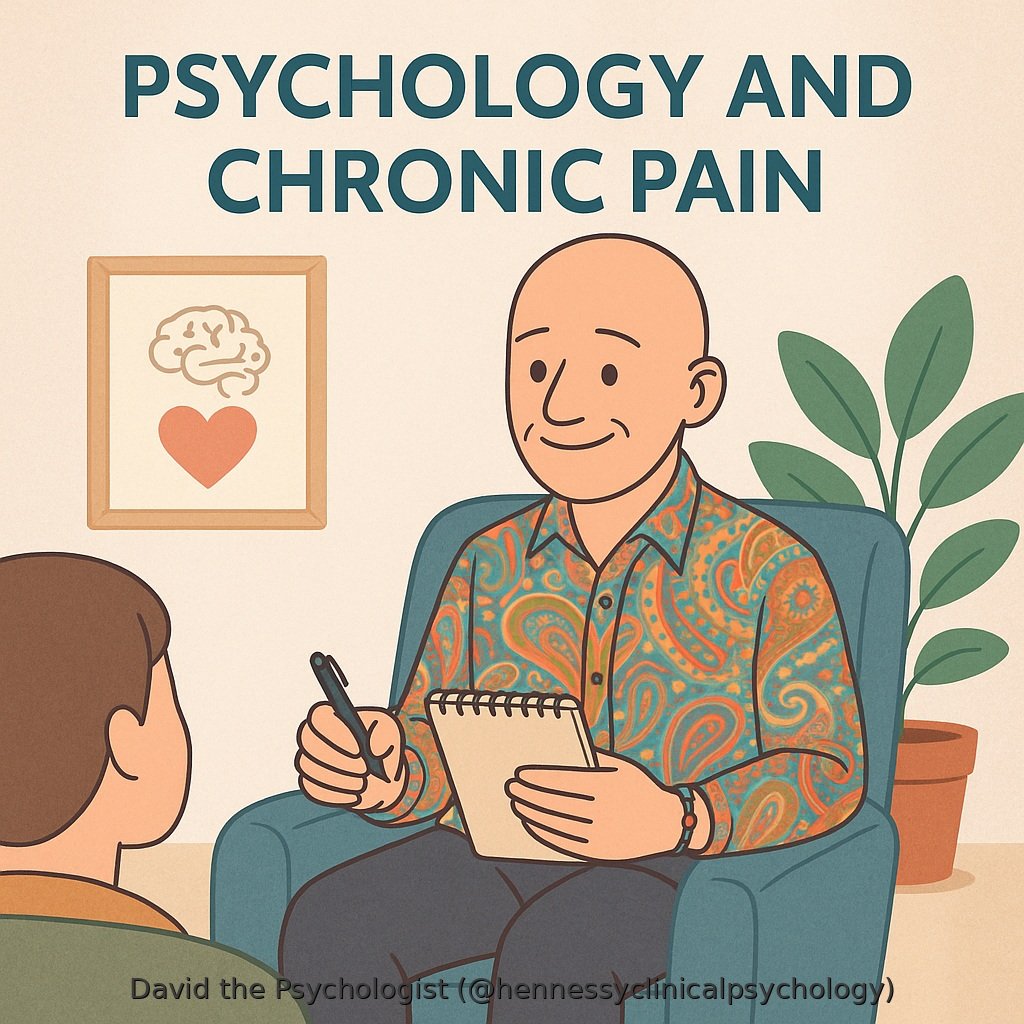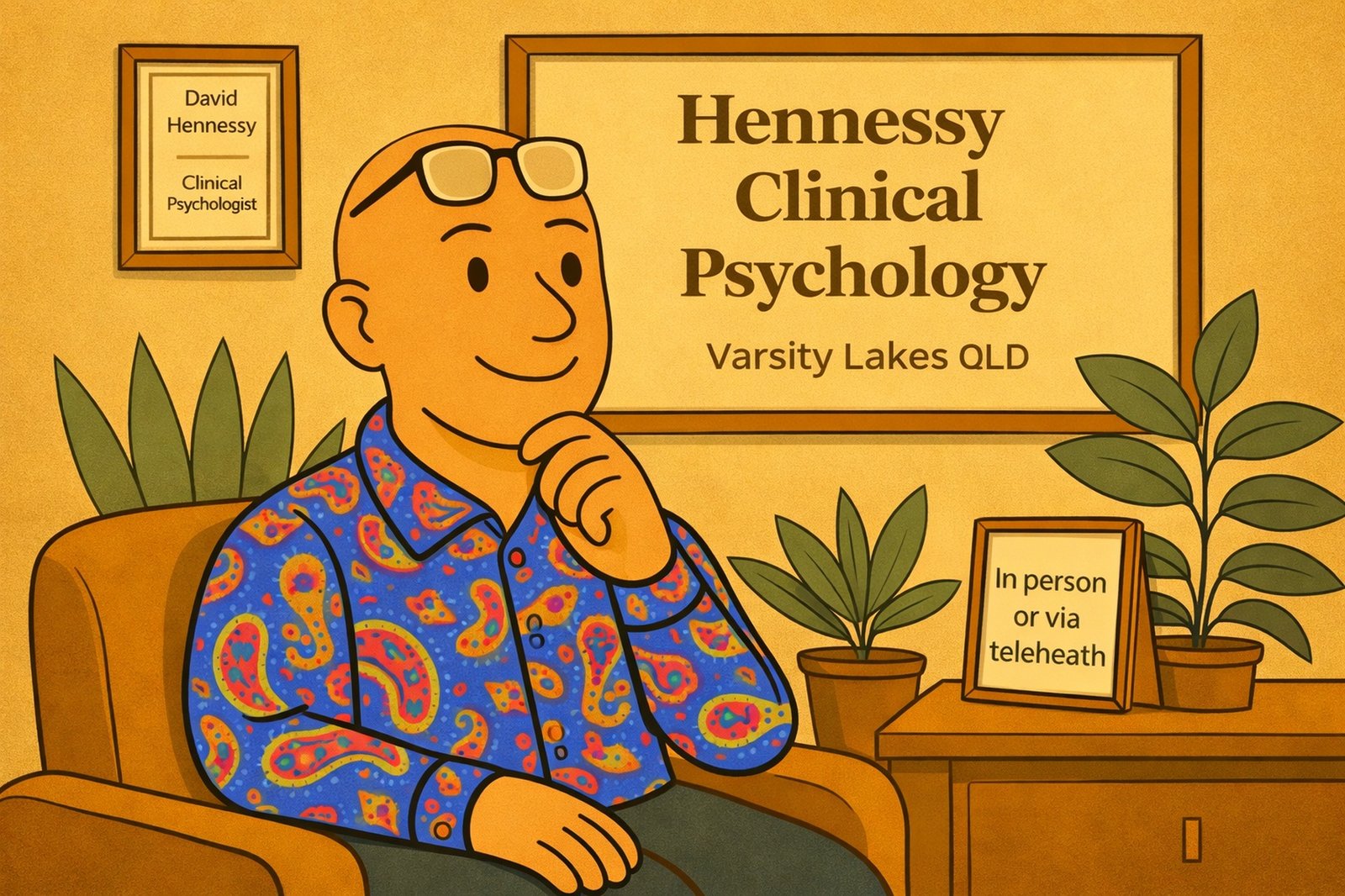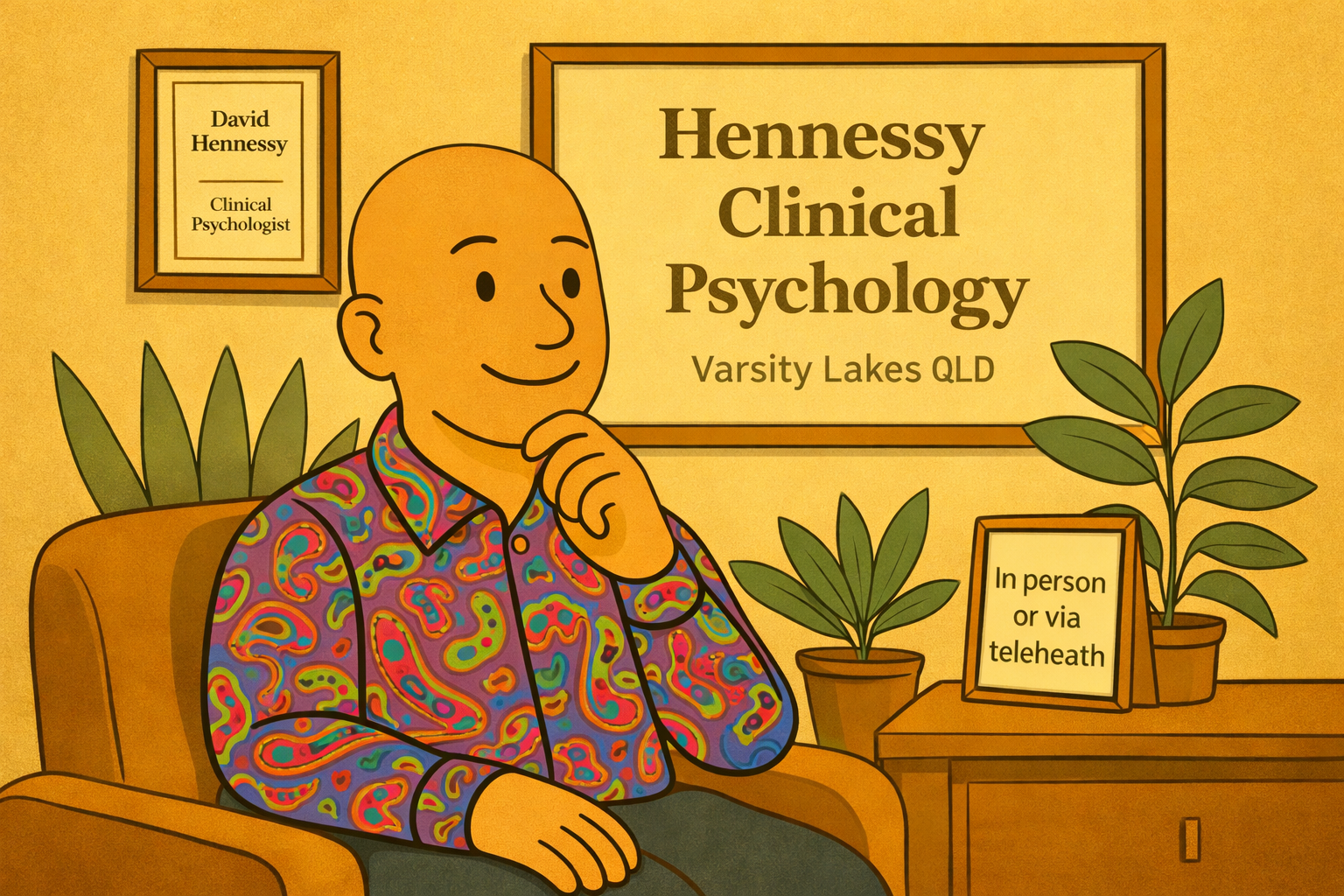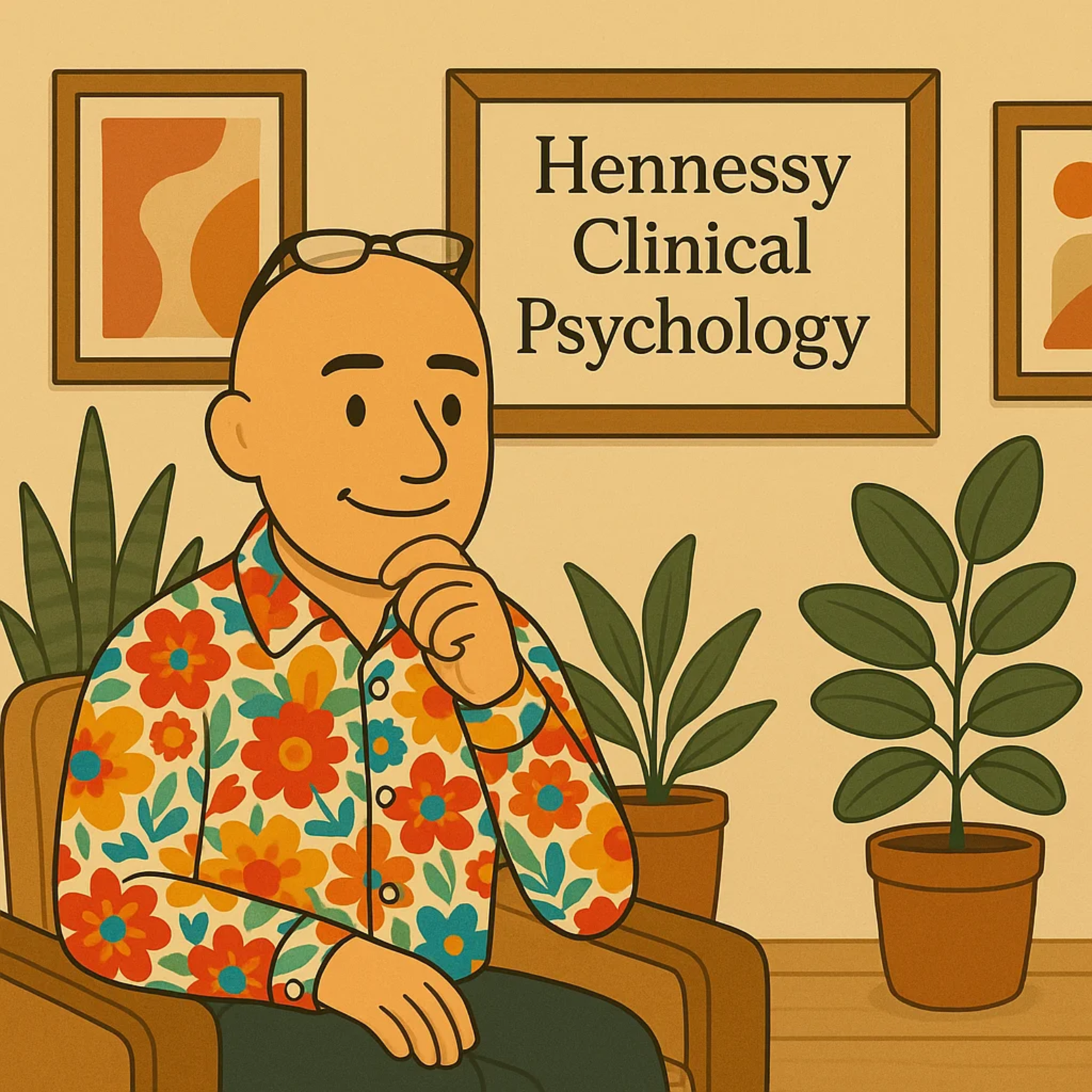Psychology and Chronic Pain
By David Hennessy, Clinical Psychologist

Living with chronic pain can feel like carrying an invisible burden. It impacts sleep, mood, relationships, identity, and hope. Pain is not just physical—it is also a neurological, emotional, and psychological experience. Fortunately, the science of pain has evolved, demonstrating that psychology is a key component in the treatment of chronic pain.
What Is Chronic Pain?
Chronic pain is typically defined as pain lasting longer than 3 to 6 months, beyond normal tissue healing time[1]. It can be caused by injury, illness, surgery, or arise without a clear origin. Over time, pain can become a disorder in itself, with changes in the nervous system contributing to its persistence[2].
How Psychology Helps
1. Understanding the Pain-Emotion Loop
Emotions and pain share neural pathways. Psychological stress, anxiety, and depression can amplify pain[3]. Cognitive Behavioural Therapy (CBT) is shown to reduce pain intensity and improve function by changing unhelpful thought patterns and behaviours[4].
2. Acceptance and Self-Compassion
Acceptance and Commitment Therapy (ACT) encourages openness to pain and a focus on values-based living, leading to better functioning and emotional wellbeing[5]. Self-compassion helps reduce guilt and self-blame[6].
3. Regulating the Nervous System
Chronic pain often keeps the nervous system on high alert. Practices like mindfulness, breath work, and Polyvagal-informed techniques help settle this overactivation[7].
4. Reconnection and Meaningful Action
Chronic pain often shrinks one’s world. Therapy supports gentle re-engagement with relationships, leisure, movement, and purpose—aligned with individual values[8].
A Multidisciplinary Approach
A multidisciplinary approach, involving a team of health professionals, is often necessary for effective chronic pain management. This may include general practitioners, psychologists, pharmacists, physiotherapists, occupational therapists, pain specialists, and occasionally psychiatrists or social workers.
Each member of this team brings a unique perspective. For example, psychologists support emotional wellbeing and coping strategies, while pharmacists help manage and optimise medications. When these professionals work together, they offer coordinated care that addresses chronic pain holistically—physically, emotionally, and socially.
A Whole-Person Approach
At Hennessy Clinical Psychology, we recognise that pain is personal and complex. We support clients through collaborative, values-based, and trauma-informed care.
You’re Not Making It Up
Chronic pain is real. You are not imagining it, and you deserve support that is respectful, evidence-based, and focused on what matters to you.
References
- Treede et al., 2019
- Tracey & Bushnell, 2009
- Borsook, 2012
- Ehde et al., 2014
- Vowles & Thompson, 2011
- Wren et al., 2012
- Garland et al., 2015
- McCracken & Vowles, 2014
Useful Resources:
Book an appointment: Hennessy Clinical Psychology – Contact Page



